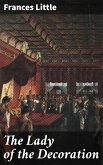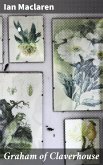William Makepeace Thackeray's 'The Fitz-Boodle Papers' is a collection of satirical sketches and stories that provide a witty commentary on the social mores of early 19th-century England. Written in Thackeray's signature style, the book combines humor with astute observations to create a compelling and insightful look at the absurdities of high society. The stories are filled with rich characterizations and sharp dialogue, making them both entertaining and thought-provoking for readers. Thackeray's writing style is eloquent and engaging, drawing readers into the world of the characters with vivid descriptions and clever wordplay. Set against the backdrop of a rapidly changing society, 'The Fitz-Boodle Papers' offers a glimpse into the complexities of class and privilege in Victorian England.William Makepeace Thackeray, a prolific writer and satirist, drew inspiration from his own experiences and observations of English society to create 'The Fitz-Boodle Papers'. His keen wit and keen eye for detail shine through in the book, showcasing his talent for exposing the follies of the upper class. Thackeray's background as a journalist and his intimate knowledge of the social circles he satirizes provide depth and authenticity to the stories, making them both entertaining and enlightening.I would highly recommend 'The Fitz-Boodle Papers' to readers who enjoy sharp wit, social commentary, and engaging storytelling. Thackeray's unique blend of humor and insight makes this collection a timeless classic that continues to resonate with audiences today.
Dieser Download kann aus rechtlichen Gründen nur mit Rechnungsadresse in A, B, BG, CY, CZ, D, DK, EW, E, FIN, F, GR, H, IRL, I, LT, L, LR, M, NL, PL, P, R, S, SLO, SK ausgeliefert werden.









